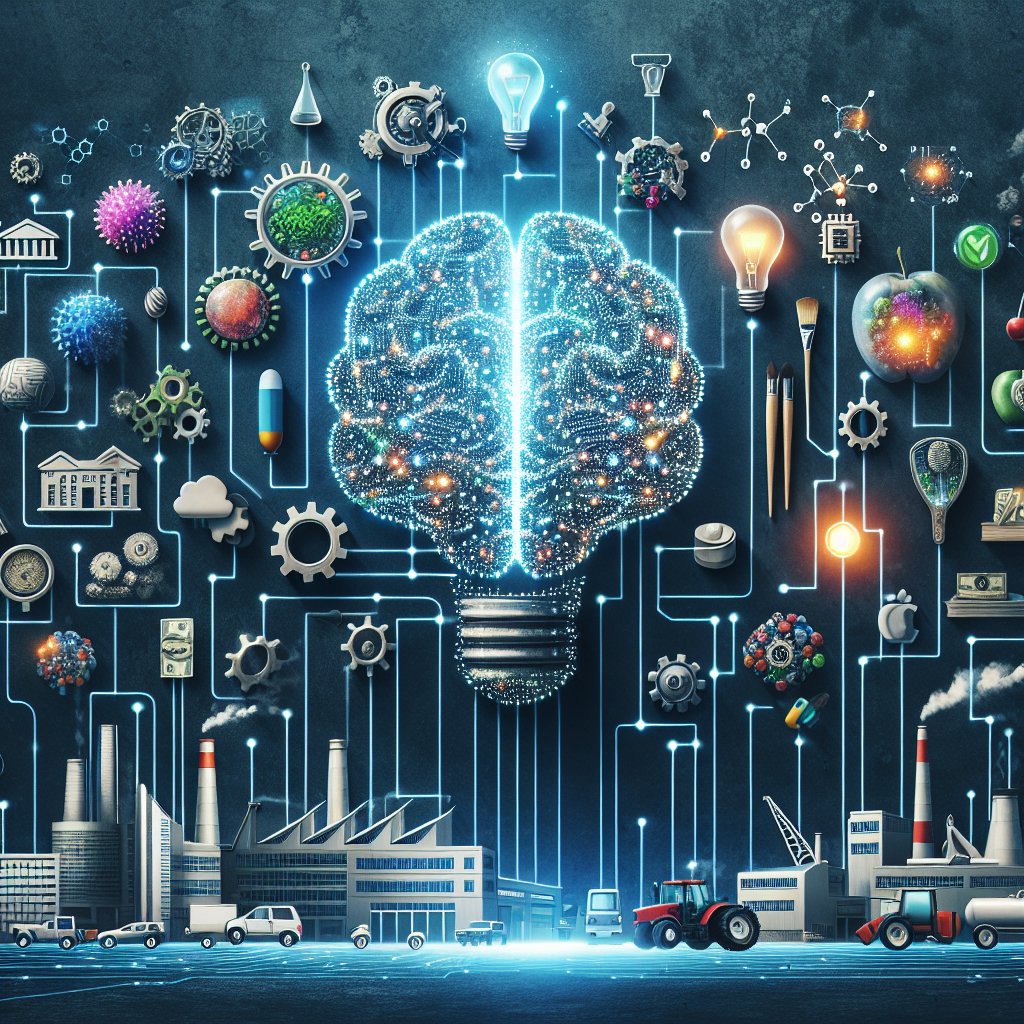The concept of Artificial General Intelligence (AGI) has long fascinated scientists and researchers around the world. AGI refers to machines that possess the ability to understand, learn, and apply knowledge in a way that mimics human intelligence. While traditional artificial intelligence (AI) systems are designed for specific tasks or functions, AGI aims to create machines that can perform a wide range of cognitive tasks at a human level.
The potential of AGI is vast and has the power to transform industries and revolutionize the way we work, live, and interact with technology. In this article, we will explore the impact of AGI on different industries and how it is reshaping our world.
Unleashing the Power of Artificial General Intelligence
AGI has the potential to significantly impact various industries, from healthcare to finance, manufacturing to transportation. Here are some of the key ways in which AGI is transforming these sectors:
1. Healthcare: AGI has the power to revolutionize healthcare by improving diagnosis and treatment outcomes, predicting disease patterns, and personalizing patient care. With the ability to analyze vast amounts of medical data, AGI can help doctors make more accurate diagnoses, recommend personalized treatment plans, and even assist in surgical procedures.
2. Finance: In the financial sector, AGI can be used to analyze market trends, predict stock prices, and optimize investment strategies. By leveraging the power of AGI, financial institutions can make more informed decisions, reduce risks, and maximize returns for their clients.
3. Manufacturing: AGI is also transforming the manufacturing industry by improving production efficiency, reducing costs, and enhancing quality control. With the help of AGI-powered robots and machines, manufacturers can automate repetitive tasks, optimize production processes, and ensure product consistency.
4. Transportation: AGI is reshaping the transportation industry by enabling autonomous vehicles, optimizing traffic flow, and improving logistics operations. With AGI-powered systems, self-driving cars can navigate roads safely and efficiently, while transportation companies can optimize routes, reduce fuel consumption, and enhance delivery schedules.
5. Customer Service: AGI is also revolutionizing customer service by providing personalized and efficient support to consumers. Chatbots powered by AGI can interact with customers in a natural language, understand their queries, and provide relevant solutions in real-time.
The potential of AGI is limitless, and its impact on various industries is just beginning to be realized. As researchers continue to advance the field of AGI, we can expect to see even more transformative changes in the coming years.
FAQs about Artificial General Intelligence
1. What is the difference between AGI and AI?
AI refers to machines that are designed to perform specific tasks or functions, such as image recognition, natural language processing, or playing games. AGI, on the other hand, aims to create machines that possess general intelligence and can perform a wide range of cognitive tasks at a human level.
2. How close are we to achieving AGI?
While significant progress has been made in the field of AI, achieving AGI remains a challenging and complex goal. Researchers continue to work on developing algorithms, models, and systems that can replicate human-like intelligence, but it is difficult to predict when AGI will be fully realized.
3. What are the ethical implications of AGI?
As AGI becomes more advanced and integrated into various industries, ethical considerations become increasingly important. Issues such as privacy, security, bias, and accountability need to be addressed to ensure that AGI is developed and used responsibly.
4. How can businesses leverage AGI?
Businesses can leverage AGI to improve decision-making, enhance productivity, and drive innovation. By integrating AGI-powered systems into their operations, companies can gain a competitive edge, streamline processes, and deliver better products and services to their customers.
5. What are the potential risks of AGI?
While AGI has the potential to bring about significant benefits, there are also potential risks associated with its development and deployment. These include job displacement, security vulnerabilities, misuse of technology, and unintended consequences of AI systems.
In conclusion, Artificial General Intelligence has the power to transform industries, revolutionize the way we work, and enhance our daily lives. As researchers continue to push the boundaries of AI and AGI, we can expect to see even more profound changes in the future. By understanding the potential of AGI and addressing the ethical and societal implications, we can harness its power for the greater good and create a more intelligent and connected world.

